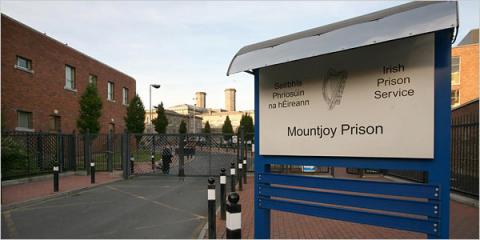Tackling the root causes of crime

A policy document launched on Thursday by the Irish Penal Reform Trust (IPRT), Barnardos, and IAYPIC (Irish Association of Young People in Care) called on the government to shift its focus in tackling crime from investment in the prison system to prevention and early intervention strategies which would make more economic and social sense. By Alison Spillane.
A 70-page report, entitled 'From Justice to Welfare - The Case for Investment in Prevention and Early Intervention', found that a small but significant number of children are in contact with the criminal justice system and this involvement is likely to have long-term negative repercussions for them and their families.
The report, based on a literature review carried out in late 2009 and early 2010, also highlighted that many of those coming into contact with the criminal justice system share common characteristics; they are often young men with low educational levels, poor parenting supports and a family history of criminal behaviour.
The report observed that, "A number of recent statements on crime policy in Ireland have recommended that crime prevention policy should focus more on early intervention in recognition that such approaches have been proven to be effective internationally".
Drawing on studies from the US, the report also noted that tackling the risk factors that lead to offending rather than the end results is likely to be cheaper as well as more effective. For example, the report looked at a study carried out by the Washington Institute for Public Policy which found that, "investing just $600 in providing early childhood education to the most disadvantaged communities saves society on average $15,000 per child in lower future crime rates."
Based on the report's findings, IPRT, Barnardos, and IAYPIC have released a policy document entitled 'Shifting Focus: From Criminal Justice to Social Justice' calling on the government to move away from a "fire-fighting approach to crime and justice that sees resources applied at the crisis-end of the issue."
Instead, the organisations are asking that the social problems associated with crime such as poverty, educational disadvantage, and experience of residential care and homelessness be targeted as areas for investment.
Specifically, they are asking the government to:
- commit to an integrated criminal justice policy, which recognises that crime prevention must be seen within the wider context of addressing the underlying causes of crime and social exclusion.
- commit to diverting a proportion of the justice budget to interventions that address the causes of social exclusion, including, but not limited to, the areas of education, health, mental health and substance misuse.
- commit to evidence-based policies which focus on building safer and stronger communities, with particular emphasis on prevention and early intervention with regard to social exclusion and its consequences.
- invest in rigorous, independent and long-term analyses of the effectiveness of prevention, early intervention and diversionary programmes and to rolling out proven best-practice models on a national basis.
- commit to expediting implementation of the recommendations in related areas, including "A Vision for Change" Report of the Expert Group on Mental Health Policy, the National Drugs Strategy (interim) 2009-2016, and the Ryan Implementation Plan, according to Government's own set timetables.
Speaking at the launch, Executive Director of IRPT Liam Herrick added, "The good news from Irish and international research is that such a shift in dealing with crime at its root causes will not only be more effective, but it will also be cheaper and will contribute to tackling social injustice and building better communities."
To read the research report and policy document in full, click here.
